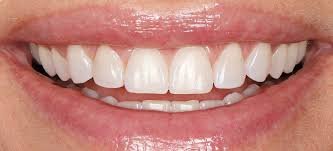Regular teeth cleanings serve as both a preventive measure and a diagnostic opportunity. The procedure allows dental professionals to assess oral health while removing harmful buildup that daily brushing and flossing cannot eliminate. Understanding what occurs during a teeth cleaning appointment can help patients prepare and make the most of their dental visits.
What Is a Teeth Cleaning?
A professional teeth cleaning is a preventive dental procedure performed by a dental hygienist or dentist. The treatment involves removing plaque, tartar, and bacterial buildup from tooth surfaces, particularly in areas that are difficult to reach with regular home care. This process differs from daily brushing and flossing because it uses specialized tools and techniques to address hardened deposits.
The procedure focuses on areas where plaque commonly accumulates, such as along the gum line, between teeth, and on the chewing surfaces of molars. Professional cleaning reaches spaces that regular toothbrushes and floss cannot adequately access. The treatment helps create a smooth surface that may resist future plaque accumulation.
What Does the Process Involve?
The teeth cleaning process typically begins with a thorough examination of the mouth, teeth, and gums. A dental professional uses a small mirror to inspect all areas and identify any potential concerns. This initial assessment helps determine the appropriate cleaning approach and identifies areas that may need special attention.
The dental specialist uses specialized instruments to remove plaque and tartar deposits from tooth surfaces. Cleaning techniques help smooth the tooth roots and remove bacterial toxins that may have penetrated below the gum line. To further protect the teeth, a fluoride treatment may be applied to strengthen enamel and help prevent cavities.
What Are the Benefits?
Professional teeth cleaning provides several health benefits beyond cosmetic improvements. The procedure removes bacterial buildup that contributes to gum disease, tooth decay, and bad breath. Regular cleanings help prevent the progression of gingivitis to more advanced periodontal disease, which can lead to tooth loss and other complications.
The cleaning process also enables the early detection of oral health issues. Dental professionals can identify cavities, gum disease, oral cancer, and other conditions during routine cleaning appointments. Early detection enables prompt treatment and prevents minor issues from developing into more serious problems requiring extensive intervention.
What Should You Ask During It?
Patients should use cleaning appointments as opportunities to gather information about their oral health status. Ask about the condition of your gums and whether there are signs of inflammation or disease progression. Understanding your gum health helps you modify your home care routines and identify areas that need additional attention.
Ask these questions during your appointment:
- What areas of my mouth need more attention during daily cleaning?
- How often should I schedule professional cleanings based on my oral health?
- What specific techniques or tools would improve my home care routine?
Inquire about proper brushing and flossing techniques specific to your mouth. Dental professionals can demonstrate effective methods for accessing difficult areas and recommend tools that can enhance your home care routine. Ask about the frequency of professional cleanings tailored to your risk factors and oral health status.
Keep Your Teeth Clean
Professional teeth cleaning represents a proactive approach to maintaining oral health throughout your lifetime. The procedure addresses bacterial buildup that daily home care cannot eliminate while providing opportunities for early problem detection. Regular cleaning appointments, combined with consistent home care, form the foundation of effective preventive dental care. Schedule your next professional cleaning appointment to improve your oral health.
- Choosing the Right Plastic Surgeon for Your Cosmetic Procedure
- Understanding Different Types of Laser Treatments for Skin Rejuvenation
- Why a Family Dentist is Key for Maintaining Oral Health
- The Benefits of Regular Visits to a Wellness Spa
- Exploring the Emotional and Psychological Triggers of Eating Disorders


Leave a Reply